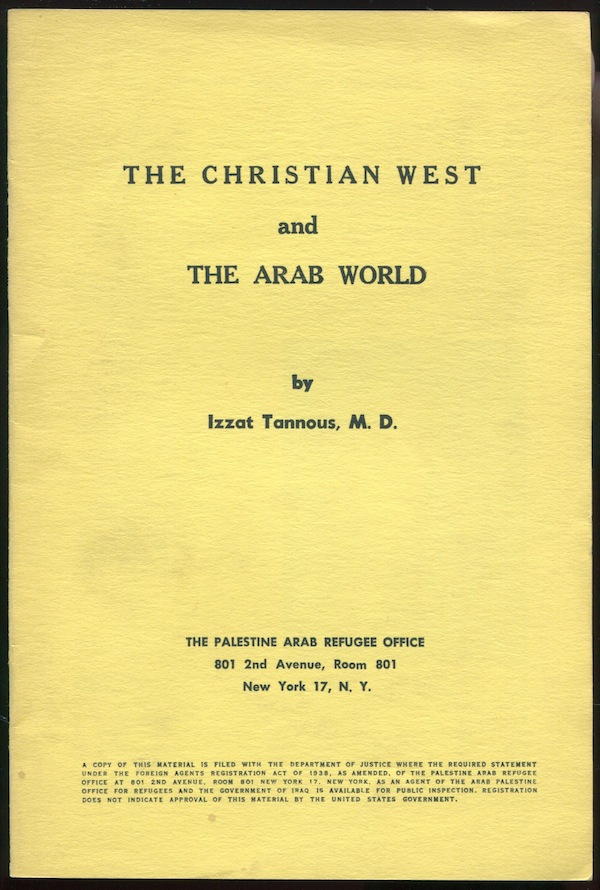“The American People Know So Little”: The Palestine Arab Refugee Office and the Challenges of Anti-Orientalism in the United States, 1955–1962
DOI:
https://doi.org/10.24847/55i2018.193Keywords:
U.S.-Palestine Relations, Decolonization, Anti-Orientalism, Palestinian National Movement, Postcolonialism, HumanitarianismAbstract
This paper explores the activities of the New York-based Palestine Arab Refugee Office (PARO), the first unofficial Palestinian-led organization that defended Palestinian self-determination in the United States following the establishment of Israel. Based mainly on the private papers of PARO public-relations officer Sami Hadawi, the memoirs and writings of PARO president Dr. Izzat Tannous, as well as rare PARO publications (such as its monthly newsletter), it examines how this small, two-person operation attempted to culturally decolonize U.S. state and society, and thus Palestinians in the process.

Published
Issue
Section
License
Copyright (c) 2018 Maurice Jr. M. Labelle

This work is licensed under a Creative Commons Attribution-NonCommercial-NoDerivatives 4.0 International License.
Authors who publish with this journal agree to the following terms:
- Authors retain copyright and grant the journal right of first publication with the work simultaneously licensed under a Creative Commons Attribution-NonCommercial-NoDerivatives 4.0 International License, which allows others to share the work with an acknowledgement of the work's authorship and initial publication in this journal.
- Authors are able to enter into separate, additional contractual arrangements for the non-exclusive distribution of the journal's published version of the work (e.g., post it to an institutional repository or publish it in a book), with an acknowledgement of its initial publication in this journal.
- Authors are permitted and encouraged to post their work online (e.g., in institutional repositories or on their website) prior to and during the submission process, as it can lead to productive exchanges, as well as earlier and greater citation of published work (See The Effect of Open Access).
The content of this journal is licensed under a Creative Commons Attribution-NonCommercial-NoDerivatives 4.0 International License.

